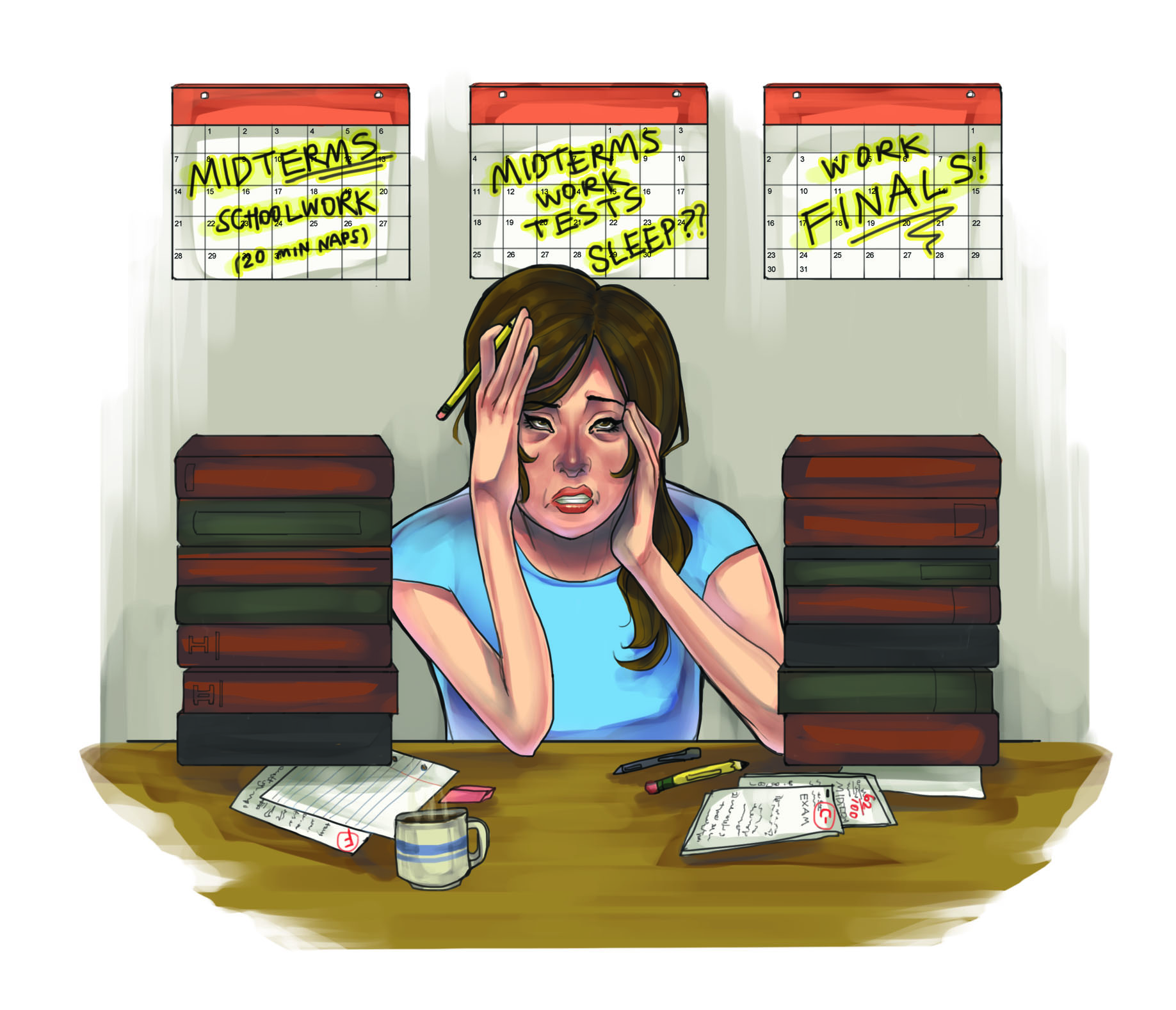A study recently published by UCLA researchers suggests that sacrificing sleep to make time for studying has markedly negative academic effects.
Though the study looked at a cohort of high school students, sleep-deprived Bruins would do well to take heed.
That losing sleep impedes academic success is not a surprise. But that academic performance always declines,even with extra study time, is quite shocking.
Given that this is the case, instructors at UCLA can take steps to ensure that their courses are conducive to the type of sleeping habits that will maximize the academic accomplishments of students.
“We have to ask, does the institution foster healthy sleep patterns?” said Dr. David Baron, executive director of the Arthur Ashe Center.
We can begin by acknowledging that the most likely cause of sleeplessness is that tempestuous temptress, procrastination. With this in mind, instructors should set procrastination, and thus sleepless nights, in their crosshairs.
According to Baron, the Ashe Center last school year made 559 sleep-related diagnoses that ranged from insomnia to sleep apnea. What that means, clearly, is that sleep, or lack thereof, is as much a problem in college as in high school.
Admittedly, it is unclear whether the direct sleep/study tradeoff identified by the study continues into college. But given that college students do make this tradeoff, Cari Gillen-O’Neel, a graduate student in developmental psychology and the study’s lead author, said the same academic consequences apply.
The data showed that regardless of extra study time, any negative deviation from a normal amount of sleep has a detrimental impact, said Gillen-O’Neel.
For the Daily Bruin’s student reader, this finding poses a serious problem.
“There really is a culture on most college campuses of sleeplessness,” said Dr. Kathleen Limbird, a staff psychologist at UCLA Counseling and Psychological Services. “(College students) are very busy, and they make less of a priority of sleep.”
Limbard said that seven to nine hours is the typical amount of sleep necessary for an adult. Any student reading this article who manages to hit that range regularly should immediately contact this columnist with scheduling tips.
Regardless of how they do it, students should make the effort to keep a regular and adequate sleeping schedule. But professors seeking to maximize academic outcomes can certainly help them along.
One possible solution comes from Duke professor Dan Ariely, a behavioral economist and best-selling author.
In an attempt to tease out the effects of procrastination, Ariely exposed his lectures to two different conditions. One group of students set its own deadlines on term papers, another group had their deadlines chosen for them, while some students within the first group chose to set no deadlines.
Ariely’s result was that the students who did best were those in the prescribed deadline group, followed by the students with self-selected deadlines. The students with the whole semester to work on their papers came in dead last.
The suggestion, then, is that professors should do their best to parse out assignments over the quarter so that students have no choice but to forgo procrastination.
Of course, professors already set deadlines for their courses and have good reasons for doing so. Accommodating their students’ sleep needs should simply be entered into the litany of considerations that professors make when writing syllabi.
If students can meet their teachers in the middle by spacing out their study time, the result would be a smarter, happier and better-rested campus.
The idea of meeting in the middle is an operative one. College students, after all, should be mature enough to manage a healthy sleeping schedule. But it is easy to confuse “should be” and “are.”
Between being newly separated from their parents and surrounded by substances and partying, students are at a loss when it comes to maintaining the regular, sufficient sleep regimen that professionals recommend.
Besides, there is no reason not to structure courses in a way that best meets the academic and physical needs of tuition-paying students.
The upshot of this study and countless others in its vein is that the “snooze/lose” aphorism may well be an either/or proposition.
Email Arom at darom@media.ucla.edu. Send general comments to opinion@media.ucla.edu or tweet us @DBOpinion.
